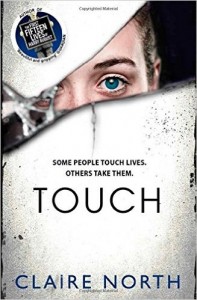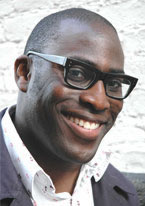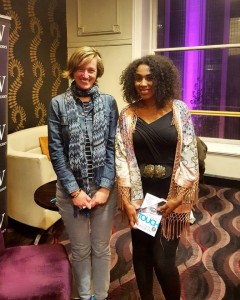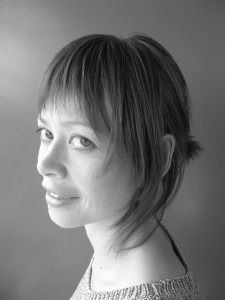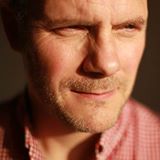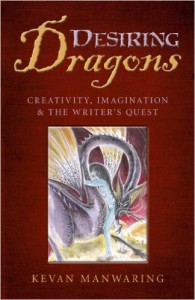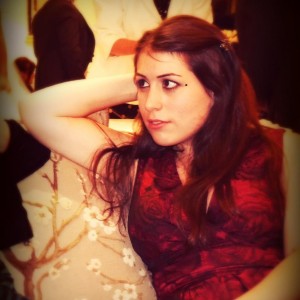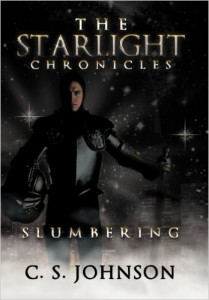
Christina is based in Georgia in the United States. Hello Christina and thanks so much for agreeing to this interview. You’re a full time educator, a published writer, a mum and a creative writing student. How do you manage to fit it all in?
There is something I learned recently. It’s called the Law of Priorities. It means the important things are the things which will get done, while the things which are less important will not. “Sleep” has fallen down this list terribly in the last year. Ironic that my novel is even called Slumbering! Of course, there are a lot of people who help me out, too. People who look like they have it all have a lot of people behind them. No man is an island, but plenty of us out there are icebergs.
Your first novel, The Starlight Chronicles: Slumbering, is out now. Tell us about it and how you got published.
It’s an epic fantasy novel, and the first in a series which follows the hero’s journey. It centres on the life of Hamilton Dinger, a narcissistic teenager who is reluctant to save his city from danger after he finds out he is a ‘fallen star,’ and capable of supernatural abilities. Slumbering describes his origins as a ‘superhero,’ emphasizing his call to belief and adventure. The mix of Tetris, schoolwork, and teen culture just makes it more fun and confusing and awkward.
I entered into a manuscript writing contest from Munce Magazine, sponsored by Thomas Nelson and WestBow Press. I won second place, and publication resulted.
How would you describe your writing style?
Witty-whimsical is the term I most frequently use to describe my writing style; it’s too fluffy to be completely ironic. My goal as a writer is to get people to think without allowing them to realize it.
The hero in Slumbering is Hamilton Dinger. Dinger has a high opinion of himself, hasn’t he?! How did you come up with him?
I started writing the story while I was in high school. I was not popular. I say this because there are some out there who would easily see themselves in my portrayal of the ‘ultimate popular guy,’ but the truth is much worse than they think it is: Hamilton is modelled after me. He’s smart, intelligent, and competitive. He is goal-oriented, determined, and largely logical. He is also ambitious, manipulative, and sceptical of most things. However unlike me, Hamilton has confidence and charisma. I joke with people all the time that it’s a good idea I don’t have much of either of those things, or I’d have taken on the world by now.
After talking to a range of people who read Slumbering prior to publication, the teenagers and young adults loved Hamilton, even if he is completely all about himself; it was the adults who didn’t like him! Sadly the ‘tragedy of youth’ is just that: we believe life to be all about ourselves. And my own personal growth in that area can be seen throughout the changes to the story: my first draft was mostly about revenge, for people like Hamilton being mean to me. But it ended up being an act of restoration in the end. As a person, and a Christian, it is my hardest challenge to love people where they’re at, rather than who they were meant to be. Seeing Hamilton’s beginnings, and working my way through to his end, it made all the difference in the world to me. It was life-changing to fall in love with him.
Did you find teenage dialogue difficult to represent?
It was a little hard. I remember a great deal of it, and turns out my college education was worth something, having worked in several high schools as a teacher. But teen communication is something which is hard to keep up with! Communication changes every day, and teenagers are the gatekeepers to language, whether they realize it or not.
You published a charitable anthology for Sandy Hook with your fellow MA Creative Writing students from Southern New Hampshire University. What was the theme and how did you get on working collaboratively with others?
Our anthology has a theme of heroism despite reality, largely with a paranormal twist. The ‘mild-mannered werewolf accountant saving a child from a burning building’ was the example sum-up we were given by our project leader, Patrick Donovan. He’s really the one who is responsible for getting us together and editing it all for us. We also had a couple of great professors chime in to help.
Your latest novel, Soul Descent, is an adult thriller. We’d love to hear about it.
It’s currently awaiting judgment on Nextnovelist.com (would love some votes!) Having experienced bullying myself at school, both as a teacher and a student, I began to wonder why all the people who go into schools and shoot everyone were boys. Don’t girls need a ‘hero’ like that too? (That’s the irony talking.)
Seeing some of the statistics on rape, bullying, and cyber-bullying in particular, I was outraged. Reading news reports about teen girls getting drugged then raped bring this out too. And thus, Scrags, my protagonist, was born. She has been bullied for years – and the trick is you never really know exactly why. She is teased for her skin, her weight, her sexual orientation, learning disorder, gender, etc. Then something terrible (terrible terrible!) happens. She watches the subsequent outpouring of pictures, texts, emails, teasing and then the unfolding of everything that follows it. Anti-spoiler alert! I’m not going to tell what it is.
You have said that ‘the rise of zombies is more real than people know.’ Care to elaborate? (Should we be worried?)
Zombies are walking among us now. In fact, they are us! Think about it. Insomnia and sleep conditions are on the rise (zombie = the living dead, insomniacs = the sleeping wakers). These are tied to physical as well as mental side effects including depression, irritability and purposelessness. The body needs sleep to look great – doesn’t your skin seem greyer when you stay up late?
The majority of people who hate their jobs/situations automatically go on auto-pilot. Communication is harder than ever despite the accessibility and availability of communication devices. People are desensitized to pain and suffering. We thirst for violence when stressed out; caffeine is the only thing keeping a lot of us from cannibalism some days. A lot of us feel dead inside.
What does all this add up to? The ultimate surprise zombie attack: our own bodies waging war against humanity! If you can relate to at least two or three of those statements, you know what I’m talking about. We are being zombified by the busyness of our culture.
Share with us some of your favourite books.
Harry Potter series, Hitchhiker’s Guide to the Galaxy series, Mere Christianity, Out of the Silent Planet,
Star Wars series, Hunger Games series, A Ring of Endless Light, Till We Have Faces, Blue Like Jazz, Astronomy for Dummies, Firebird trilogy
Thanks for taking part Christina, and good luck with all your writing projects.


